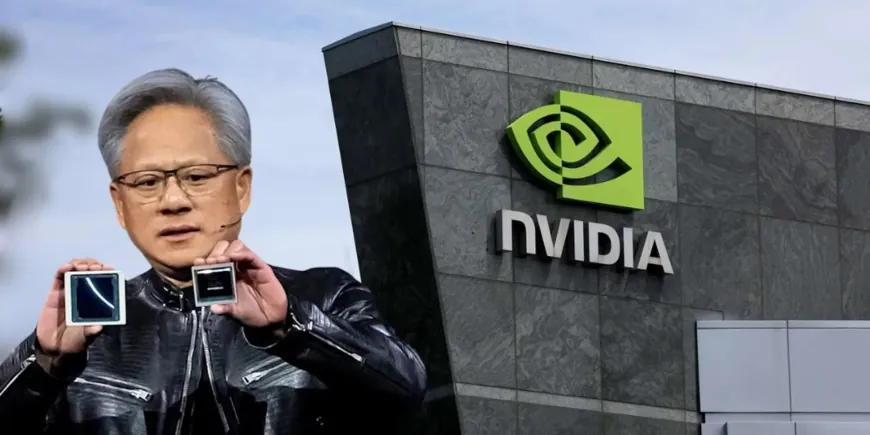Nvidia Plans Shanghai R&D Centre Following US Export Restrictions on AI Chips
Nvidia is seeking a site in Shanghai for a new research and development centre after US curbs limited sales of its advanced AI chips in China. The move aims to adapt technology locally and compete with Chinese rivals like Huawei.

Nvidia is intensifying efforts to establish a dedicated research and development centre in Shanghai, marking a strategic pivot to safeguard its position in the Chinese market as U.S. export restrictions tighten on advanced AI chips. Three insiders familiar with the plans confirmed the company’s focus on the Minhang and Xuhui districts, both hubs for tech innovation and international business in Shanghai.
This move comes in the wake of heightened U.S. controls limiting the export of Nvidia’s most powerful AI processors to China. With shipments of its flagship H20 chip now severely restricted, Nvidia’s revenue stream from China — which accounted for an estimated $17 billion last fiscal year — is under increasing pressure.
The push for a local R&D centre was accelerated by a surprise visit last month from Nvidia CEO Jensen Huang, who met with Vice Premier He Lifeng and Shanghai Mayor Gong Zheng. The high-level meetings signaled Beijing’s receptiveness to Nvidia’s investment despite the ongoing geopolitical tensions, highlighting a rare alignment of interests amid a challenging environment.
China’s AI market is projected to reach $50 billion within a few years, according to Huang. Nvidia sees direct involvement in this growth as critical, not only for maintaining market share but also for fending off aggressive advances by local competitors like Huawei, who have been rapidly developing their own AI chips and software stacks. These domestic firms benefit from government-backed subsidies and increasingly sophisticated technology ecosystems that appeal to local customers.
Key to Nvidia’s strategy is developing a “downgraded” version of its H20 chip, tailored specifically for the Chinese market to comply with export limits while preserving a competitive edge. The Shanghai R&D centre is expected to play a crucial role in this adaptation, allowing Nvidia to conduct on-the-ground testing, customization, and collaborate with Chinese academic and industrial partners.
Local authorities in Shanghai have reportedly offered Nvidia substantial incentives, including tax breaks and a significant land allotment for the facility. Shanghai’s ambition to bolster its status as a global tech and innovation hub aligns well with Nvidia’s needs. The city is home to several international tech giants, such as Tesla’s Gigafactory, which has thrived under a similar model of local collaboration and governmental support.
The establishment of the R&D hub also represents a broader shift in the semiconductor industry, where companies are localizing operations to navigate an increasingly fragmented global supply chain shaped by geopolitical disputes. For Nvidia, the centre offers a way to sustain growth in a critical region while working within the bounds of U.S. export rules.
Nvidia’s sales in China have reportedly dropped nearly 50% since U.S. restrictions came into effect, reflecting a steep decline in shipments of cutting-edge chips. This revenue loss, coupled with rising competition, presents a significant challenge. However, Nvidia’s move to embed R&D efforts locally is an attempt to mitigate risks and remain competitive by offering products tailored to local market needs and regulatory frameworks.
The company’s efforts come at a time when the semiconductor landscape is evolving rapidly. China’s push for semiconductor self-sufficiency — part of its broader “Made in China 2025” initiative — has seen significant investments in domestic chip design and fabrication. For global firms like Nvidia, navigating this environment requires agility and a willingness to engage more deeply with Chinese partners despite regulatory constraints.
While Nvidia has not publicly confirmed the details of the Shanghai R&D project, the initiative underscores the complex balance multinational tech companies face in managing access to the lucrative Chinese market amid intensifying U.S.-China technology tensions.
Why Shanghai?
-
Strategic Location: Minhang and Xuhui districts are known for dense tech clusters and access to highly skilled engineering talent, making them ideal for R&D activities.
-
Government Support: Shanghai’s local government has a history of providing incentives such as tax breaks, land grants, and streamlined regulatory approvals to attract foreign tech investments, which would ease Nvidia’s establishment process.
-
Ecosystem Synergies: Hosting other major international tech players, including Tesla’s Gigafactory, Shanghai offers a vibrant innovation ecosystem that Nvidia can tap into for collaboration and supply chain benefits.
-
Mitigating Export Restrictions: By developing chips locally and adapting designs on the ground, Nvidia can better comply with U.S. export laws while maintaining its competitive position in China.
Nvidia’s plan to open an R&D centre in Shanghai shows how much the company values its business in China — despite the growing limits on what technology it can sell there. The restrictions on Nvidia’s top AI chips have already hit its sales hard, but the company is betting that being on the ground in China will help it adjust its products and work more closely with local partners.
This new centre will let Nvidia design chips that fit China’s rules and customer needs better than if everything was done from abroad. It’s a practical step to keep a foothold in one of the world’s fastest-growing AI markets, even as the company faces stiff competition from homegrown rivals backed by the government.
Also Read: Nvidia Sinks 6% on U.S. AI Chip Ban as Asia Markets Dive on China GDP, Tariff Shock





























































